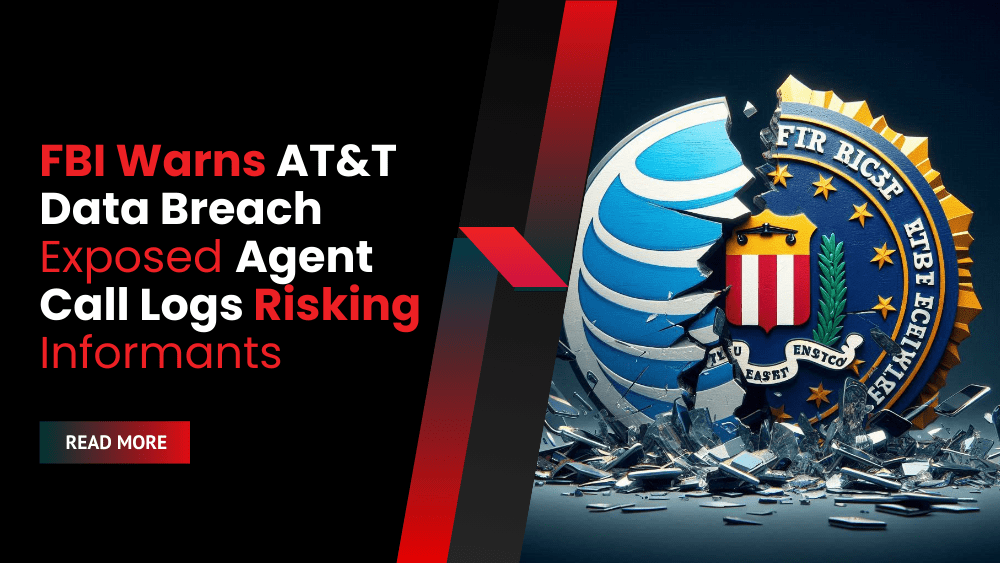The FBI issued a critical warning to its agents concerning a major AT&T data breach that occurred in 2022. The breach compromised call and text message logs, posing a significant threat to the bureau’s confidential informants and the integrity of ongoing investigations.
The breach, disclosed by AT&T in July 2022, impacted approximately six months of call and text message records from nearly all of its 100+ million customers.
While the content of the messages themselves remained secure, the exposed data included communication logs of FBI agents using AT&T’s public safety agency services. This data theft represents one of the largest telecommunications breaches in recent history, following similar attacks on AT&T and Verizon networks.
The details of the AT&T breach affecting agent call logs are alarming. The compromised data has the potential to link investigators to their confidential sources, seriously jeopardizing informant safety and the success of ongoing investigations.
The breach affected all devices used by FBI agents under the bureau’s AT&T service. In response, the FBI and NSA have issued new smartphone security guidelines to address these vulnerabilities in mobile telecommunications.
The impact of this AT&T data breach on FBI operations is substantial. Former NSA hacker and current vice president of research at Hunter Strategy, Jake Williams, commented that proper protocol adherence should minimize risk.
However, he also suggested the warning might be precautionary or indicate the discovery of operational irregularities within the stolen data. The risks of exposing agent call logs are severe.
Retired FBI agent William Evanina emphasized the gravity of the situation:
“Any disclosure of such communications is both significantly detrimental to investigations but also potentially dangerous to confidential informants if their identity is disclosed. Not good.”
“This is an op-sec failure more than a technology failure,” Former agent Miguel Clarke added.
U.S. officials have linked this incident to a broader cyber-espionage campaign targeting U.S. telecommunications companies. In November, they attributed the attacks to Chinese state-sponsored hackers, specifically a group known as Salt Typhoon, which has targeted nine telecommunications companies.
The Cybersecurity and Infrastructure Security Agency (CISA) has responded by releasing comprehensive mobile security guidelines focused on encryption and authentication protocols to strengthen telecommunications security.
To mitigate future risks and improve secure communication in law enforcement, the FBI and other agencies recommend using end-to-end encrypted messaging platforms like Signal or WhatsApp. These platforms minimize metadata storage and enhance user privacy.
This recommendation aligns with recent joint advisories from the FBI and CISA regarding SMS vulnerabilities between different mobile platforms, highlighting the importance of encryption in communications.
The measures taken by the FBI after the AT&T breach include issuing new security guidelines and promoting the use of encrypted communication. The cybersecurity implications for informant safety are profound, underscoring the need for stronger security protocols and addressing operational security failures in data breaches.









